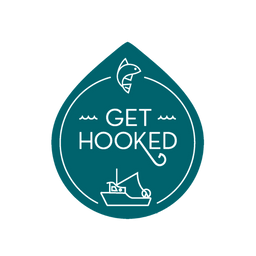The Great Seafood Swindle: What's Really on Your Plate?
Jan 27, 2025
Last December, we learned a disturbing truth about seafood fraud during a Local Catch Network webinar. The revelation? Your "wild-caught" salmon might be farm-raised, and those "local" shrimp could be imports wearing a false badge of origin.
This deception hits your wallet hard - you're paying premium prices for falsely labeled seafood. But the impact runs deeper, threatening the very survival of American fishing communities.
Take the crisis unfolding in Gulf Coast shrimp fishing. A recent investigation of Mississippi restaurants revealed a shocking truth: of 44 establishments advertising prized Gulf Royal Red Shrimp, only eight actually served them. The other 36? They were dishing out Argentinean Pink Shrimp instead.
While Argentinean Pink Shrimp might sound exotic, there's a dark side to this substitution. Seafood Watch gives them a red "avoid" rating - due to destructive bottom trawling practices and poor fishery management. Meanwhile, Gulf Royal Reds are in the yellow category, thanks to required turtle excluder devices and careful stock management.
This substitution isn't just about environmental ratings - it's decimating American fishing communities. Gulf shrimpers, who invest in sustainable practices and responsible management, are being undercut by cheaper imports. The result? Idle boats and shuttered processing plants dot our coastline.
The problem extends beyond shrimp. Even in Seattle, a city proud of its wild salmon heritage, deception runs rampant. Studies found misleading salmon claims in 13.5% of grocery stores and 23% of sushi restaurants.
The United States leads the world in sustainable fishing practices, thanks to the Magnuson-Stevens Act, NOAA's science-based management, and strong community involvement through Regional Fisheries Management Councils. But this commitment to responsibility comes at a price that fraudulent labeling undermines.
Hope on the Horizon
The tide is turning. Federal agencies are taking notice as community testing exposes fraud. The Federal Trade Commission is cracking down on perpetrators, while NOAA, USDA's Country of Origin Labeling program, and Customs and Border Protection are strengthening enforcement.
Your Role in the Solution:
- Choose seafood from transparent, trusted sources (like Get Hooked!)
- Report suspicious labeling at reportfraud.ftc.gov
- Remember: Supporting honest seafood practices protects both our oceans and coastal communities
Every time you ask your server or fishmonger about the source of your seafood, you're not just making a purchase - you're holding them accountable and casting a vote for the future of our oceans and the communities that depend on them.


